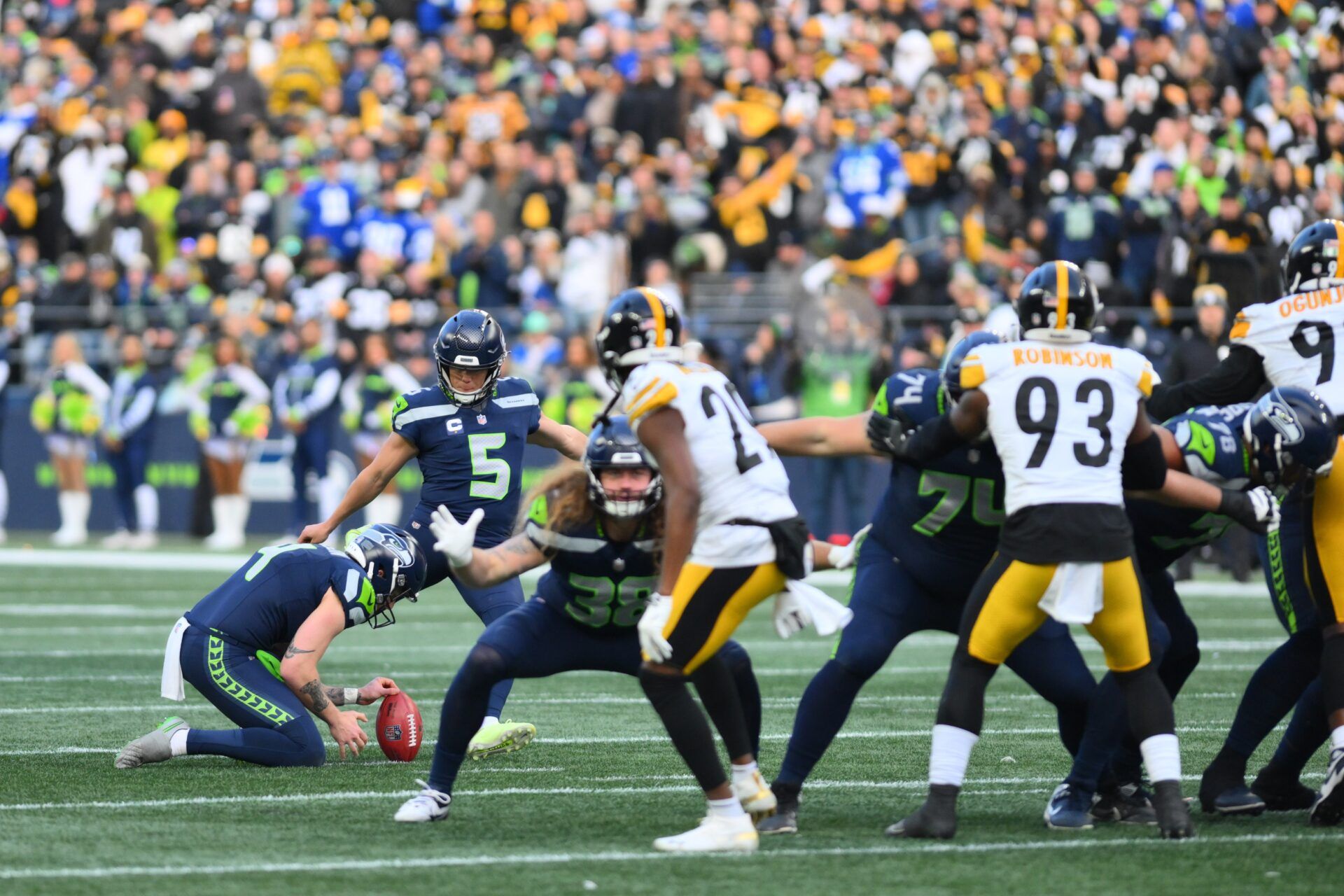The Pittsburgh Steelers appeared to have blocked an extra point in the second quarter of their Sunday Night Football Week 7 game against the New York Jets. However, the play was nullified due to a leverage penalty on Minkah Fitzpatrick.
We explain what the penalty means and why the Steelers were called for the violation.

Explaining the NFL’s Leverage Penalty
The NFL rulebook defines leverage as “A defensive player jumping or standing on a teammate or an opponent to block or attempt to block an opponent’s kick.”
Fitzpatrick was called for the penalty after seemingly using teammate T.J. Watt to propel himself over the line of scrimmage to block Greg Zuerlein’s point after attempt. However, a closer inspection of the play suggests that Fitzpatrick may have touched Watt but not necessarily used it to propel himself forward.
Steelers called for leverage on this blocked extra point. It looks like he touched them but did not leverage off of him. #NYJvsPIT pic.twitter.com/02YiWvXRB8
— Rate the Refs App (@Rate_the_Refs) October 21, 2024
The penalty moved the ball to the 1-yard line, and the Jets converted on the two-point conversion to take a 15-6 lead.
The leverage penalty is not to be confused with leaping, which bans a player from jumping over linemen on kick attempts. The practice was popular for a few years and led to several spectacular blocked kicks, but it posed a player safety risk for scenarios where the leaper didn’t actually clear the line.
Although the leverage penalty is rare, it’s not unheard of. The Steelers were actually the third team called for leveraging this season, along with the Las Vegas Raiders (in Week 5 vs. the Broncos) and New England Patriots (in Week 3 vs. the Jets).
The Steelers themselves have actually been called for leveraging three straight seasons, including against the Jets in 2022 and Raiders last season. So, if any team should have been aware of the subtleties of the rule, it probably should have been Pittsburgh.

